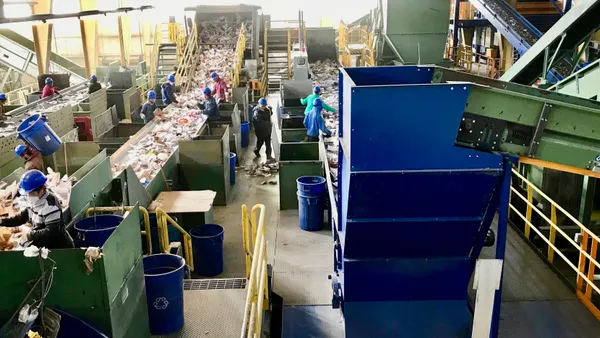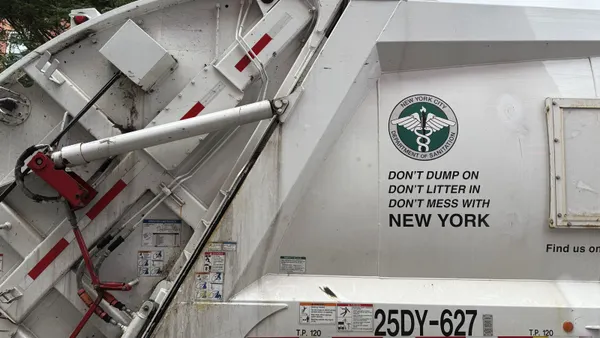Dive Brief:
- The Natural Resources Defense Council (NRDC) will begin a multi-city food waste characterization study this fall — with nearly $1 million in funding from the Rockefeller Foundation — to better understand what type of organic material is being thrown away, as reported by Smithsonian.
- Researchers will survey about 1,000 residential volunteers in Nashville, Denver and New York over the next five months by asking them to keep weekly diaries of what they throw away. The team will then analyze the contents of residents' waste in detail.
- The NRDC team will also be analyzing waste from about 100 businesses such as schools, arenas, restaurants and grocery stores to better understand how much food could have been donated.
Dive Insight:
While the subject of food waste is becoming more well-known since the EPA set a goal of reducing it 50% by 2030, even the most dedicated researchers still don't fully understand what's being thrown out and why people are doing it. The sobering statistic that up to 40% of food may be wasted in the U.S. came out in a 2012 NRDC report and the organization recently teamed up with the Ad Council for a major public awareness campaign called "Save the Food." Now the NRDC is looking to further advance the understanding of food waste behavior in a big way.
"What we will have at the end is a decent estimate of residential waste, why and what, and a very preliminary look at commercial waste," said Dana Gunders, a senior NRDC scientist and author of the 2012 report, in Smithsonian. "I expect it’s a first step that people will build off of for years."
Unlike many waste characterization studies, which often put all organic or food waste in the same category, this one will give a more detailed look at how much food could have been saved through better understanding of date labels or planning and how much was items such as bones or peels. The NRDC has also been very active in the conversation around potential reforms to the date label system. Recent research has shown that date labels may play a key role in people's willingness to waste food and are widely misunderstood.










